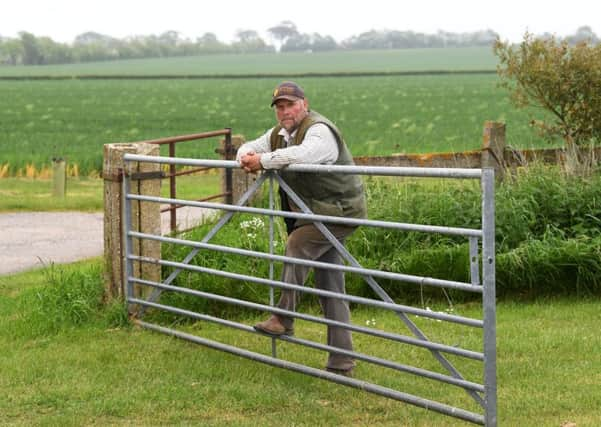Quarter of rural businesses see land targeted for crimes against wildlife


Some 26 per cent of agriculture, forestry and fishing businesses said their land had been targeted, findings which came as the president of the National Farmers’ Union, Minette Batters, called for a legislative change.
Poaching is part of a wave of criminality which is undermining agricultural businesses, with farms also suffering thefts of expensive machinery such as quad bikes and tractors, and even livestock.
Advertisement
Hide AdAdvertisement
Hide AdMs Batters told The Yorkshire Post that a greater financial deterrent for poachers would be a good start in tackling the blight.
“If you have a vehicle seized by police, you have to pay to get it back but if a dog is seized, the police have to pay to have them kennelled,” she said. “This needs a minor change in legislation. At the moment it’s a lose-lose situation for the police.”
East Yorkshire farmer Phil Meadley has been repeatedly targeted by poachers, some of whom have brazenly trespassed, addressed him with obscene language and hunted with dogs.
Thieves have also taken a Land Rover and an all-terrain vehicle from the farm, his tractors’ fuel tanks have been drained, supplies of diesel snatched and crops destroyed by vehicles.
The impact has been emotional as well as financial.
Advertisement
Hide AdAdvertisement
Hide Ad“We’ve had numerous poaching incidents and one resulted in a dog being put down after being hit by a vehicle. That really upset me. I carried it to the roadside. The guy whose dog it was wasn’t interested,” Mr Meadley said.
“These poachers have a total disregard for your property. They’ll walk right past you and tell you to ‘do one’. It can happen two or three times a week.
“My son lives on the farm with his young son and wife. His wife - and my wife - gets quite nervous when these people walk past the windows. I don’t see why people should have to put up with that level of intimidation.”
Mr Meadley, whose arable farm is near Driffield, blocks access routes to his land but criminals often find a way to negate any obstacles.
Advertisement
Hide AdAdvertisement
Hide Ad“The problem is a farm can be such a big area that you can’t see all the gateways from the farmstead. It’s irritating having to having to put extra effort in all the time to make sure nothing is accessible. It adds an awful lot of work onto your day.”
He said he reports each incident to the police but that “for those few minutes when something arises and the police are on their way, you are quite vulnerable”.
Mr Meadley is a member of a local Farm Watch scheme which sees other residents and the police share live information about suspicious activity or breaking crime. “That’s the only way we can start to fight back, the way we can really stop them,” he said. “That’s the help we need, everybody watching out.”
FARMERS FEEL IN STATE OF SIEGE
New figures from the Home Office also show that 35 per cent of agriculture, forestry and fishing businesses have experienced trespassing or unauthorised access of land or buildings in the last four years.
Advertisement
Hide AdAdvertisement
Hide AdAccording to its 2017 Commercial Victimisation Survey, 23 per cent of businesses had quad bikes or other vehicles driven illegally on their land and another 15 per cent of businesses experienced livestock worrying.
Guy Smith, deputy president of the National Farmers’ Union, said farmers “often feel in a state of siege from the criminal fraternity” and that the NFU hears from its members every day about rural crime.
“These crimes, whether it is fly-tipping, hare-coursing, burglary or theft, have more in common with organised crime than simply spontaneous acts, and it all impacts on the daily lives of farmers in far-reaching and costly ways,” he said.